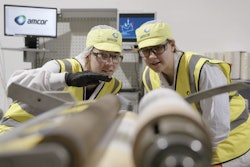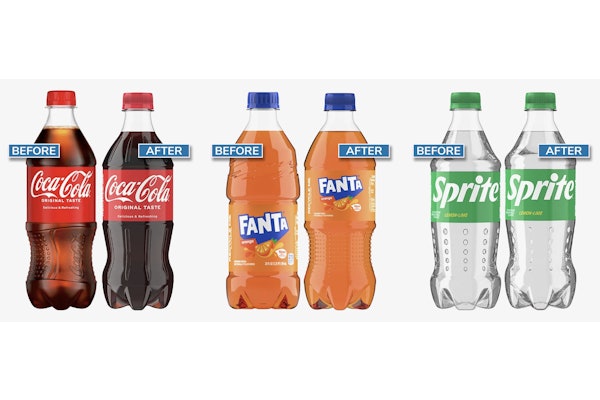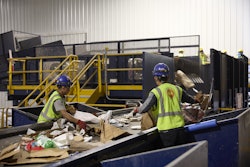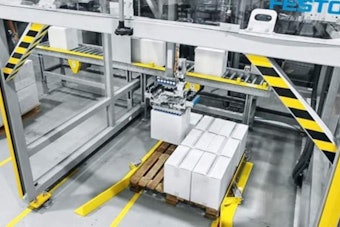
A coalition of global scale CPGs and brand owners announced the launch of the US Flexible Film Initiative (USFFI), a non-profit membership organization that aims to help to advance scalable solutions to recycle flexible plastic packaging. The initiative is initially focused on California, with the potential to be scaled to states with emerging EPR (Extended Producer Responsibility) programs.
USFFI’s founding members, General Mills, Mars, Mondelēz International, Nestlé, Hill’s Pet Nutrition, and PepsiCo, state that they recognize both the essential role flexible packaging plays and the important work they share in helping to build a more sustainable future for flexible films.
“Flexible packaging recycling has begun to scale in other countries; now it’s our turn. We’re drawing on global funding models to accelerate real solutions here in the U.S.,” says Rachael Lawrence, Senior Director of Sustainability at PepsiCo Foods North America.
Flexible packaging plays a critical role in meeting consumers' expectations for safe, convenient, high-quality products while also helping to reduce food waste, the organization says, adding that it represents one of the largest categories of plastic packaging, yet it is often not part of municipal recycling programs today. Recognizing the challenges with recycling flexible plastics, USFFI says it wants to be part of the solution.
As USFFI’s founding members continue to advance design for recyclability and increased use of recycled content, they also recognize that strategic investment is essential to accelerating end-of-life solutions for flexible films. In 2024, the founding members of USFFI partnered with leading organizations in the recycling research space to identify gaps in the flexible packaging recovery system. While grants and capital investment opportunities are available to flexible plastic processors and recyclers, there is little support for the operational costs of either sorting flexible packaging or processing flexible packaging bales into usable products. Earlier this year, the founding members engaged Resource Recycling Systems (RRS) to help launch USFFI and begin implementing this critical work.
By committing to multi-year contracts with material recovery facilities (MRFs), flexible plastic processors, and recyclers, USFFI aims to help the industry find a next life for these materials and move towards a model where flexible films are intentionally collected alongside other recyclables.
“At Mars, we recognize the value of flexible packaging, and we are exploring options to create viable end-of-life pathways. By directly funding MRFs and recyclers through US FFI, we aim to prove that flexible packaging can be recycled at scale and become a meaningful part of a circular economy,” says Feliks Bezati, Global Circular Packaging Director at Mars.
USFFI says it will launch its efforts by issuing requests for information (RFIs) to recyclers, processors, and MRFs interested in supporting flexible packaging recycling and being considered for operational funding. Participation in this RFI process will be mandatory for any entity that wishes to be considered for future financial support. Given the diversity of solution providers and the different states of readiness, USFFI wants to tailor its funding to the specific needs of this emerging supply chain and welcomes inquiries to learn more. RFIs will target the following types of companies:
- Processors and Reclaimers of MRF Film Bales
- Plastic Reclaimers that can recycle flexible plastic packaging into new products today.
- Secondary Processors capable of aggregating and processing mixed flexible plastic packaging and preparing them for reclamation today or in the immediate future.
- Producers of MRF Film Bales
- California MRF operators that can recover flexible packaging and film already flowing through their facilities or have an interest in doing so in the immediate future.
Recognizing the current state of recycling flexible plastic packaging and the need to build and scale markets, USFFI alone cannot achieve the scale of change needed to create a functioning recycling system for flexible packaging. The initiative is open to expanding its membership to additional brands and retailers seeking to accelerate progress. Success will require close collaboration with others advancing critical parts of the system, including investment capital, equipment grants, municipal recycling programs, and consumer education. This collective action can create the cross-sector effort needed to make flexible film recovery a reality.
“Partnerships are essential in addressing the complexities of recycling flexible plastic packaging. At Nestlé, we believe that collective action is crucial to developing sustainable solutions. Through USFFI and its work with other key partners, we aim to help create a more robust infrastructure that will advance our shared goal to implement end-to-end recycling solutions for flexible packaging,” says Tiffany Gildehaus, senior manager of environmental sustainability at Nestlé Purina.
USFFI says it encourages all interested stakeholders to watch for the first RFI release and prepare to respond and help shape the future of flexible packaging recovery.






















